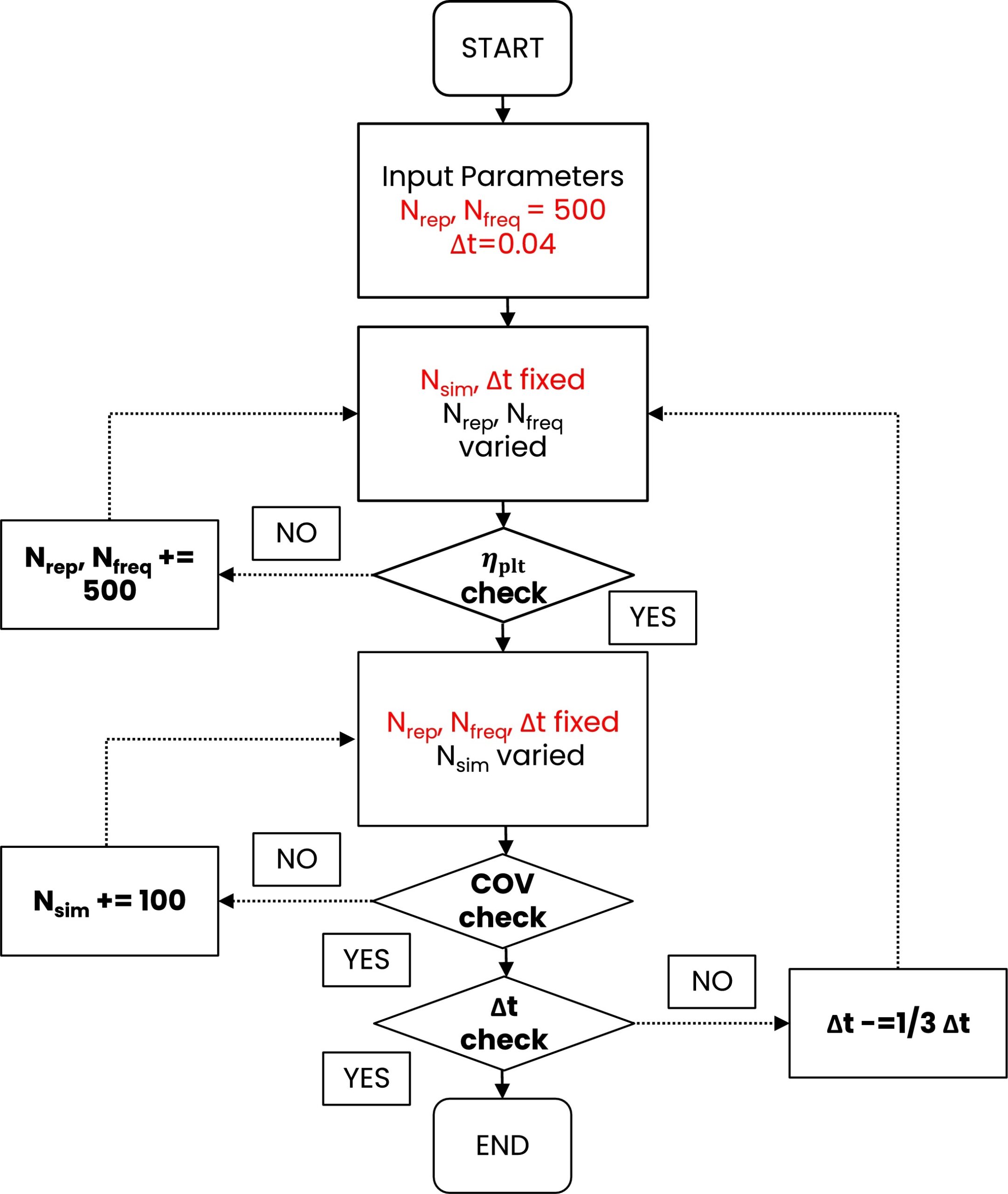Development of an automated reliable method to compute transport properties from DPD equilibrium simulations: Application to simple fluids
 Dissipative particle dynamics (DPD) is a promising candidate technique for modeling the rheological properties of soft matter systems. However, several methodological issues inhibit its exploitation as a computational rheology tool. In this work, we focus on the development of an automated method to compute transport properties from equilibrium simulation with particular attention to the assessment of the Green-Kubo approach reliability and computational feasibility for a large set of simple DPD systems with increasing Schmidt number. Furthermore, we investigate the time step size dependency of dynamic properties and the role of different time integration schemes. In particular, we assess the performance of the Shardlow-splitting algorithm against the most popular modified velocity-Verlet algorithm. We consider, for the first time, the application of the Shardlow-splitting algorithm to the transverse DPD thermostat in different friction regimes relying on systematic numerical experiments. In addition, we make use of these findings to perform a multi-parametric study aiming to investigate the Schmidt number relationship with the effective friction coefficient.
Dissipative particle dynamics (DPD) is a promising candidate technique for modeling the rheological properties of soft matter systems. However, several methodological issues inhibit its exploitation as a computational rheology tool. In this work, we focus on the development of an automated method to compute transport properties from equilibrium simulation with particular attention to the assessment of the Green-Kubo approach reliability and computational feasibility for a large set of simple DPD systems with increasing Schmidt number. Furthermore, we investigate the time step size dependency of dynamic properties and the role of different time integration schemes. In particular, we assess the performance of the Shardlow-splitting algorithm against the most popular modified velocity-Verlet algorithm. We consider, for the first time, the application of the Shardlow-splitting algorithm to the transverse DPD thermostat in different friction regimes relying on systematic numerical experiments. In addition, we make use of these findings to perform a multi-parametric study aiming to investigate the Schmidt number relationship with the effective friction coefficient.
- N. Lauriello, G. Boccardo, D. Marchisio, M. Lísal, A. Buffo, Development of an automated reliable method to compute transport properties from DPD equilibrium simulations: Application to simple fluids, Comput. Phys. Commun. 291, 108843, 2023. DOI